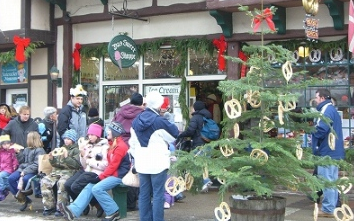
Art is one of the strongest, transcontinental languages.
Paintings travel across the world and miraculously enjoyed by vastly different
cultures. The German documentary, Gerhard
Richter Painting, directed by Corina Belz, follows the internationally
renowned artist, Gerhard Richter through his late artistic career and daily
studio and gallery life.
Gerhard Richter was born in Dresden, Saxony, leaving school
after the 10th grade to apprentice as a stage set painter before attending the
Dresden Academy of fine arts. Two months before the building of the Berlin
Wall, Richter escaped from East to West Germany. After his escape he began
studying at the Kunst Akadamie Dusseldorf where he discovered Capitalistic
Realism, an art form he utilized as an anti-style of art, "appropriating
the political shorthand of advertising." Richter now lives and works out
of Cologne.

Richter's works generally depict "illusionistic space." His earliest works created during the early 60's and 70's are called photo-paintings, taken from newspapers, personal photos or books. In the late 60's early 70's his works turned along a more abstract path with his "Grey paintings." The film begins by giving a scroll by of his earlier works (photo-realistic), preceded by an early interview with him after his move out of the east, and finally shows Richter painting two different human sized abstract paintings. We watch his cheerful little minions cleaning up for him, and purifying his paint. Ah this is how real artists work (good to know, as an art student).
This documentary on the influential artist, Gerhard Richter,
moves along at a slow, real-life pace. I would recommend the documentary if you
are interested in German culture, art, and the workings of the mind of an
artist. Despite the 10 minute waiting period, the beginning scene in which
Richter paints on two canvases at once is highly interesting for the sake of
watching an abstract artist's process. I think it is common for people, even
artists, to walk into a museum and automatically disregard an abstract work as
silly. However simply through watching the process and the artist in action
that opinion could drastically alter, as mine has. Even though the movie
progresses extremely slowly, I felt as if I couldn't look away for fear of
missing an important scene of "art action." You can watch this documentary on Netflix.
Dorothy
Dorothy












